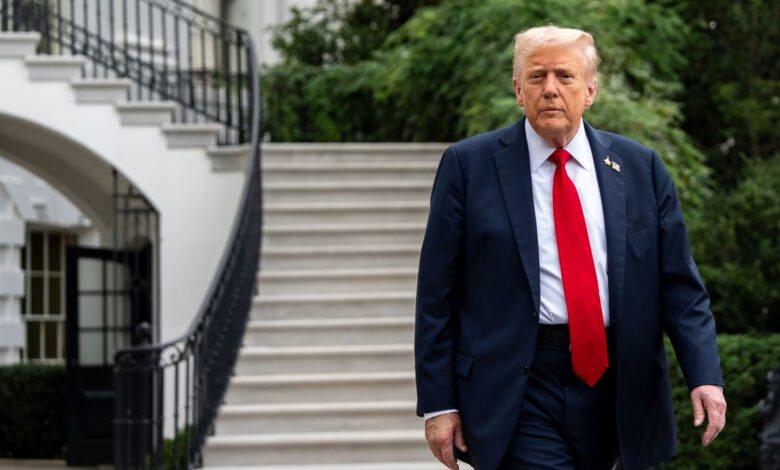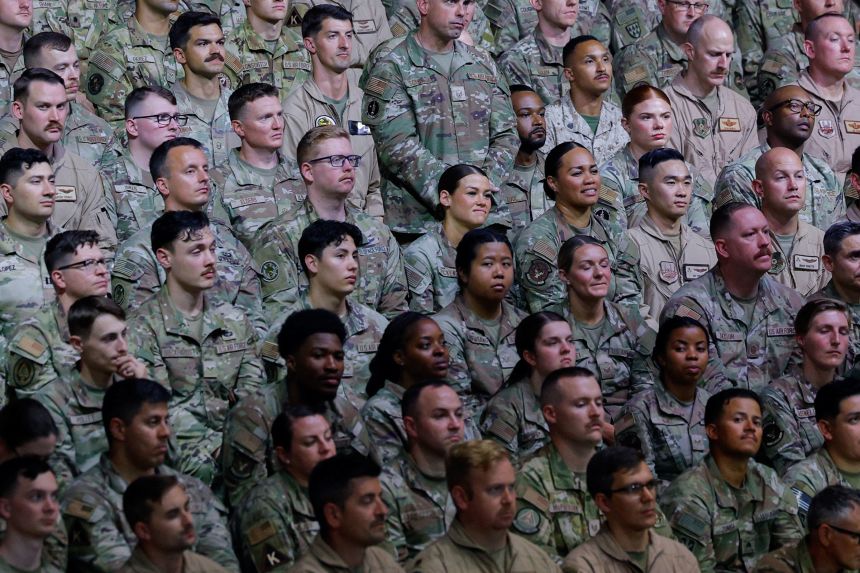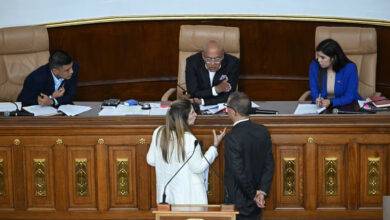
President Donald Trump has bestowed upon the nation of Qatar a remarkable security guarantee that could include coming to its defense militarily.
In an executive order dated earlier this week, Trump declared that the United States will regard any attack on Qatar’s territory, sovereignty or critical infrastructure “as a threat to the peace and security of the United States” itself.
And perhaps most crucially, the order suggests the US might come to Qatar’s defense militarily.
“In the event of such an attack, the United States shall take all lawful and appropriate measures — including diplomatic, economic, and, if necessary, military — to defend the interests of the United States and of the State of Qatar and to restore peace and stability,” the order says.
This is an extraordinary development in Trump’s controversial relations with the Middle East, for several reasons.
Trump is giving Qatar a NATO-esque security guarantee
Quite notably, the language of the executive order closely resembles the security guarantee that the North Atlantic Treaty Organization (NATO) gives to member countries. (Qatar is not in NATO, though the Biden administration in 2022 labeled it a major non-NATO ally.)
Article 5 of NATO says that member nations like the United States agree that an armed attack against one of them shall “be considered an attack against them all.”

It also says that members “will assist the Party or Parties so attacked by taking” necessary actions “including the use of armed force, to restore and maintain the security of the North Atlantic area.”
Trump’s executive order doesn’t as strongly commit to a military response if Qatar is attacked (for reasons we’ll get to). But treating attacks on Qatar effectively as threats to the United States is taking things with this Arab ally to another level.
Trump is doing it unilaterally
There are a key differences between this and the NATO security guarantee, though. The big one is that Trump is doing this unilaterally, through an executive order.
That’s significant because it means this isn’t a legally binding, ratified treaty – i.e. one requiring sign-off from the US Senate. It’s in effect a promise that Trump is making using the imprimatur of his office. And it’s not something future presidents will have to abide by.
But the fact that Trump is doing this unilaterally is, in itself, remarkable. The Constitution explicitly gives the power over treaties to the Senate, and here’s the president bypassing Congress over something as serious as potentially committing the US military to war.
Trump has bypassed Congress on plenty of things that are normally under its purview, mostly notably the tariffs that are currently being decided by the Supreme Court. And he’s mostly been successful thanks to congressional Republicans’ acquiescence. They often don’t want to challenge him.
But yet again, Trump is pushing the envelope.
Republicans’ concerns about Qatar
A big question is whether congressional Republicans and conservatives writ large might actually do – or at least say – something about Trump going around them on this Qatar executive order.
That’s not only because Trump is asserting a power that is traditionally the Senate’s, but because he’s making a security guarantee on behalf of a country that many Republicans are quite suspicious of.
Republicans have complained for years about Qatar’s alleged human rights abuses and connections to groups they call out as terrorists, including the Muslim Brotherhood and Hamas. Those concerns bubbled up earlier this year when Trump controversially accepted a $400 million Qatari jet to eventually be used as a new Air Force One.

“I’m not flying on a Qatari plane,” Sen. Rick Scott of Florida said at the time. “They support Hamas.”
“I’d be checking for bugs is what I’d be checking for,” Sen. Shelley Moore Capito of West Virginia said.
Right-wing activist Laura Loomer, who’s been influential with the president, strongly criticized the deal, suggesting Trump should instead focus on designating the Muslim Brotherhood as terrorists.
Even as recently as Tuesday night, Sen. Ted Cruz of Texas suggested that Qatar might be secretly funding antifa in the United States.
A 2023 Washington Post-University of Maryland poll showed Americans as a whole, and even Republicans, had a net-negative view of Qatar. (The survey asked the question in the context of Qatar’s growing involvement in the sporting world – what critics label “sportswashing.”)
And among those Republicans who once expressed deep suspicions about Qatar: Trump himself.
“The nation of Qatar has historically been a funder of terrorism at a very high level,” he said in 2017, while urging it to “end its funding” of “extremist ideology.”
Trump ran on ‘America First’ and has previously criticized NATO’s security guarantees
One of those conservatives criticizing the donated Qatari plane was podcaster Ben Shapiro, who said it amounted to accepting “goodies from people who support Hamas, the Muslim Brotherhood, Al Jazeera, all the rest.”
Then Shapiro added: “That isn’t ‘America First.’”
And that’s the other rub here. Not only is guaranteeing Qatar’s security difficult to square with Trump complaining about it funding terrorism less than a decade ago. But it’s discordant next to his “America First” agenda.
Trump has previously derided the concept of security assurances and even intermittently suggested the United States might not abide by Article 5 of NATO.
Back in 2018, he suggested that having to protect a small NATO-member nation like Montenegro might escalate things to “World War III” levels.
It’s merely the latest evidence of a president who has grown increasingly militaristic and more open about at least threatening to entangle the United States in foreign conflicts.
It inserts the United States more into a tinderbox
This is also a security guarantee in a highly combustible region.
Trump is pledging to come to the aid of a country where Israel launched strikes less than a month ago (against Hamas leaders in Doha) and which Iran struck less than three months ago. Indeed, Qatar has regularly found itself enmeshed in Middle Eastern conflicts.
As recently as 2017, Qatar was also embroiled in the worst diplomatic crisis in the Middle East in decades. At the time, other major nations cut ties with it over its alleged support for terrorism and broader destabilization of the region.
There are geopolitical reasons to maintain a close alliance with Qatar, with both Republican and Democratic administrations recognizing that in recent years. Qatar has also played a significant role in Trump’s attempts to forge a peace deal in Gaza.

(Trump this week presented his 20-point plan for peace in the enclave, which did not include a provision from an earlier version saying Israel would not attack Qatar.)
But Trump’s move is not just forging a controversial and much-closer bond; it’s forging it in a region where it could be called upon to make good on this promise.
Trump’s personal ties to Qatar
The situation also resurfaces Trump and his family’s own controversial ties to Qatar – a nation that’s clearly sought to curry favor with the president.
The acceptance of the Qatari jet is particularly dicey given Trump has said the luxury plane will be transferred to his presidential library after his term ends, rather than remaining in use by the US government.
And in April, the Trump Organization announced plans for a Trump-branded golf resort in Qatar that was supported by a firm backed by Qatar’s sovereign wealth fund.
The New York Times reported two weeks ago that Trump’s controversial sale of valuable artificial intelligence chips to the United Arab Emirates coincided in highly suspicious ways with a lucrative cryptocurrency deal with the Emiratis.
Trump and his personal businesses have clearly blurred the lines between government business and personal interests in the Middle East. The White House denied conflicts of interest to the Times, saying a key negotiator, Steve Witkoff, was “working with ethics officials and counsel to ensure he is in full compliance.”
The Qatar executive order also raises all kinds of questions – some of which are about connections between possible personal benefits and official government actions.
Qatar has given Trump some extraordinary gifts. Now he appears to have given it one right back.




